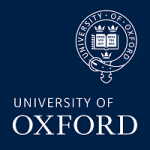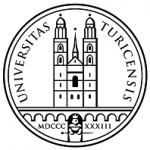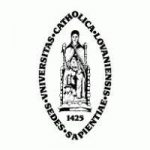项目介绍
About the course
The programme exposes you to a range of multidisciplinary approaches and embraces all aspects of ion channel and membrane transport research from protein structure, x-ray crystallography and single particle CryoEM, genetics and cell physiology, to animal behaviour and human disease. The first year involves exposure to different techniques during two extended rotation projects in different labs. This is followed by a three-year multidisciplinary research project involving two different OXION groups.
In the first year, in addition to the two 5-month laboratory rotations, you will also prepare for a multidisciplinary PhD by undertaking the PILB and PILC animal courses (formerly known as modules one to four) of the Home Office Personal Licence. Other University-based training and lecture courses may also be considered relevant depending upon your background.
A unique aspect of the programme is the wide range of experimental techniques available within the OXION laboratories. These include approaches to whole animal in vivo physiology and animal behaviour, as well as cutting-edge biochemical, biophysical, electrophysiological, structural and computational methods for studying ion channels and membrane proteins.
From the second to fourth years, you will focus on your doctoral research project. This must be a multidisciplinary project that involves more than one research group. Such joint projects not only help you develop independence and a wider range of skills, but also facilitate important collaborations between groups. The final choice of both project and host research groups will be made by you in conjunction with the Organising Committee.
Where appropriate, you will also have the opportunity to take additional graduate modules to equip yourself with new skills that might be required for your project, or to update your knowledge of major new developments in your own (or related) research field. Training will also be provided in other relevant transferable skills such as writing research papers, planning/writing a thesis and presentation skills.
Supervision
The allocation of graduate supervision for this course is the responsibility of the Medical Sciences Doctoral Training Centre and it is not always possible to accommodate the preferences of incoming graduate students to work with a particular member of staff. Under exceptional circumstances a supervisor may be found outside the Medical Sciences Doctoral Training Centre.
The primary supervisor will be drawn from a list of those working directly on ion channels or transporters but the choice of co-supervisor may depend on the nature of the project and techniques required. Students typically meet with their supervisors weekly.
Applicants are advised to visit the course page on the centre’s website for further information about supervisors associated with this course (see Further Information and Enquires).
Assessment
All students will be initially admitted to the status of Probationer Research Student (PRS). Within a maximum of six terms as a PRS student you will be expected to apply for transfer of status from Probationer Research Student to DPhil status.
A successful transfer of status from PRS to DPhil status will require the submission of a report on progress to date on research and future plans. Students who are successful at transfer will also be expected to apply for and gain confirmation of DPhil status within ten terms of admission, to show that your work continues to be on track.
Both milestones normally involve an interview with two assessors (other than your supervisor) and therefore provide important experience for the final oral examination.
You will be expected to submit an original thesis of up to 50,000 words within a maximum of four years from the date of admission. To be successfully awarded a DPhil in Ion Channels and Membrane Transport in Health and Disease you will need to defend your thesis orally (viva voce) in front of two appointed examiners.
Graduate destinations
Many graduates from this programme continue with academic postdoctoral research in prestigious laboratories worldwide and some now have independent research positions. Other graduates have entered the healthcare and pharmaceutical industry or have continued with their medical training.
Changes to this course and your supervision
The University will seek to deliver this course in accordance with the description set out in this course page. However, there may be situations in which it is desirable or necessary for the University to make changes in course provision, either before or after registration. The safety of students, staff and visitors is paramount and major changes to delivery or services may have to be made in circumstances of a pandemic (including Covid-19), epidemic or local health emergency. In addition, in certain circumstances, for example due to visa difficulties or because the health needs of students cannot be met, it may be necessary to make adjustments to course requirements for international study.
Where possible your academic supervisor will not change for the duration of your course. However, it may be necessary to assign a new academic supervisor during the course of study or before registration for reasons which might include illness, sabbatical leave, parental leave or change in employment.
For further information please see our page on changes to courses and the provisions of the student contract regarding changes to courses.
录取要求
-
a first-class or strong upper second-class undergraduate degree with honours in a relevant biological science subject.
-
However, entrance is very competitive and most successful applicants have a first-class degree or the equivalent.
联系方式
电话: +44 1865 270000相关项目推荐
KD博士实时收录全球顶尖院校的博士项目,总有一个项目等着你!






